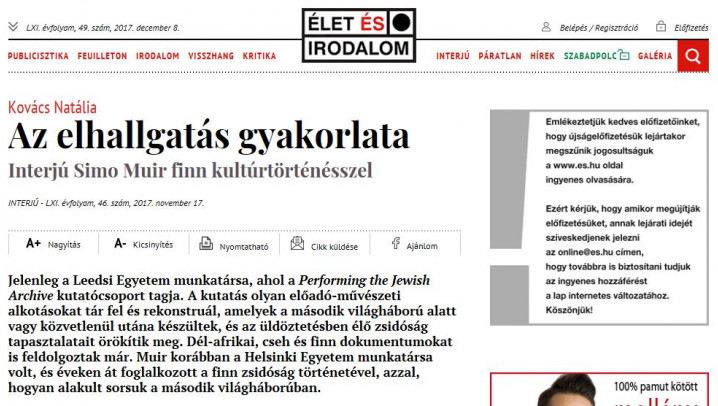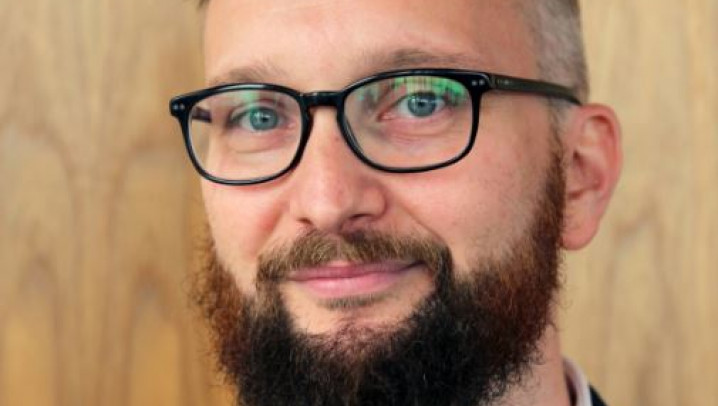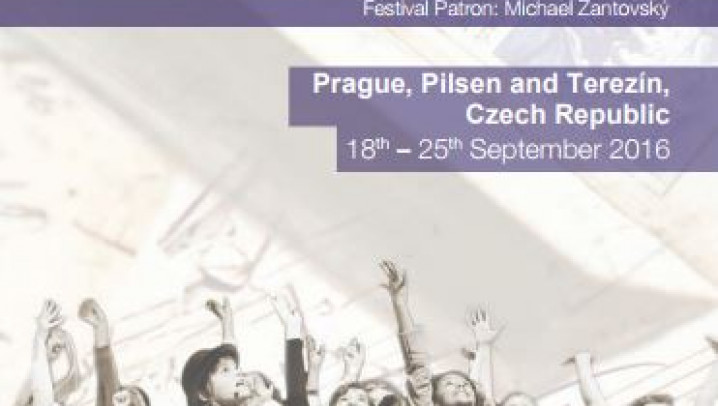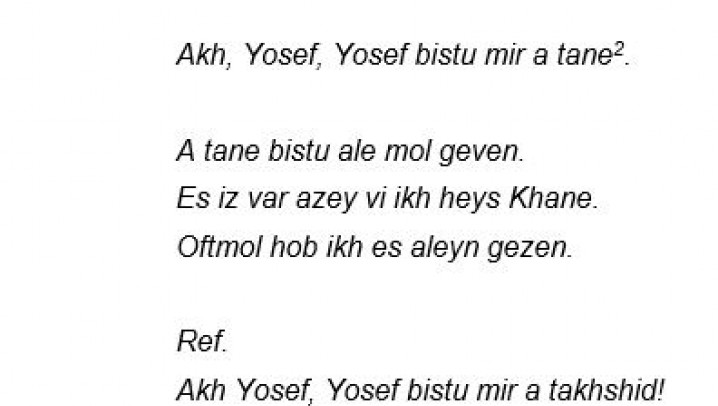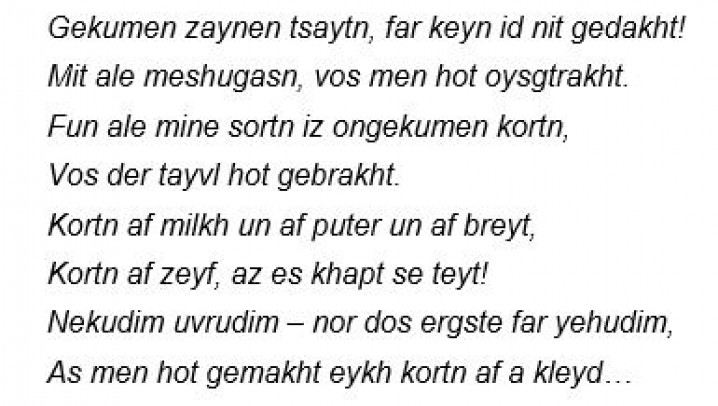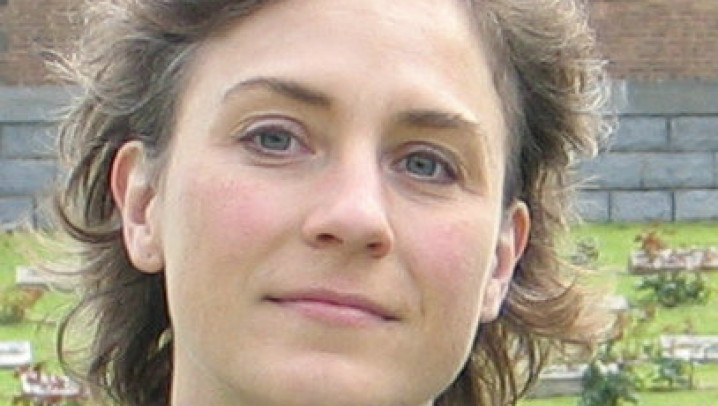
Jewish cabaret from Terezín to Helsinki (Židovský kabaret od Terezína po Helsinky)
Scenes, songs and poems from two cabarets written in Terezín and from the work of Jac Weinstein of Helsinki
| Genre | Cabaret performance |
|---|
A Performing the Jewish Archive event.
Though the Nazis forced Jewish artists out of public life, Jewish culture continued to thrive – sometimes in the most unexpected places. This cabaret presents works from two such places: one in the heart of Nazi-occupied territory – the WWII Jewish ghetto at Terezín; the other in a precarious position just outside it – the Jewish community of Helsinki.
Concept by Lisa Peschel and Simo Muir
Script by Lisa Peschel
Songs, poems and sketches by Jac Weinstein, Felix Porges, Vítězslav „Pidla“ Horpatzky, Pavel Stránský and friends
Flying Rabbi – klezmer ensemble
Vojtěch Pospíšil – C clarinet
Vojtěch Peštuka – violin, voice
Jana Dosedělová – flute, tsimbl, voice
Miroslav Ondra – accordion, voice
Pavel Jurečka – double-bass
In this cabaret performance, songs, poems and sketches are embedded within a historical narration (delivered by the performers) that describes the circumstances of their creation. Part I presents excerpts from one of the earliest cabaret-type works to be performed in the Terezín ghetto: Radio Show from December 1942, hosted by Felix Porges and Vítězslav „Pidla“ Horpatzky. Although supposedly set in 1937, during the prisoners' normal, prewar lives, the the songs and sketches are nevertheless full of references to the authors' present in the ghetto. Part II presents songs and poems written by Jac Weinstein of the Helsinki Jewish community. Covering a period from 1940 to 1944, the works range from early, comic songs to later, darker works reflecting Weinstein's growing awareness of the destruction of European Jewry. Part III returns us to Terezin and a later work by Porges and Horpatzky: the cabaret Laugh with Us. Performed in the summer of 1944, the cabaret is set in a postwar future in which the comic duo and their friends have all returned to Prague and have forged successful artistic careers. The concluding narration describes the fates of each community: while the Jewish community of Helsinki was never deported and survived the war intact, two-thirds of the prisoners of Terezín were deported to Auschwitz in the autumn of 1944 and only a small fraction survived.
Scenes and songs from Radio Show
Introduction to the Radio Show
Radio Half Hour for Industry, Business and Trade
Song of Prague
Fairy Tale (based on Snow White)
March of the Young
Scenes, songs and poems by Jac Weinstein
A couplet about points (from A comedy of us Jews)
Oh, Joseph Joseph (from A comedy of us Jews)
Star of David
Jewish tears
The report
Dark is the night
Scenes and songs from Laugh with Us
Introduction and Opening Song: Long Live Cabaret
On Wenceslaus Square, 1953 (?)
Abandoned
Sixth dialogue: In a Park, 1988 (?)
Closing Couple (The Bad Old Days of Terezín)
| Researcher | Simo Muir |
| Researcher and scriptwriter | Lisa Peschel |


